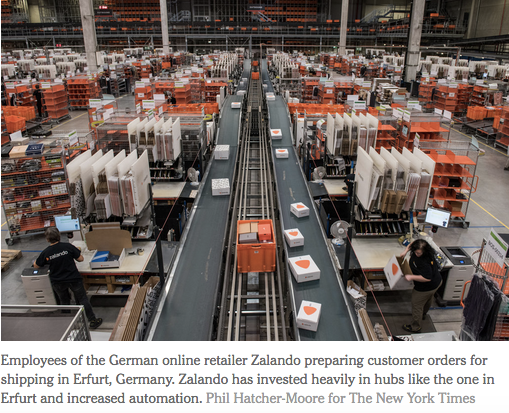The discussion occurred as economists were more optimistic than they had been for a decade about growth. Mr. Draghi used the occasion to signal that the European Central Bank is edging closer to the day when it will begin paring measures intended to keep interest rates very low and bolster the economy.
“All the signs now point to a strengthening and broadening recovery in the euro area,” Mr. Draghi said. His comments pushed the euro to almost its highest level in a year, though it later gave up some of the gains.
But along with the optimism is a fear that the economic expansion might bypass large swaths of the population, in part because a growing number of jobs could be replaced by computers capable of learning — artificial intelligence.
Policy makers and economists conceded that they have not paid enough attention to how much technology has hurt the earning power of some segments of society, or planned to address the concerns of those who have lost out. That has, in part, nourished the political populism that contributed to Britain’s vote a year ago to leave the European Union, and the election of President Trump.




